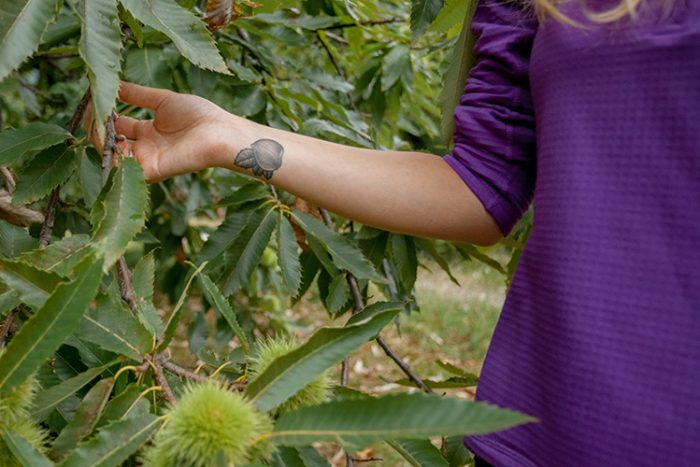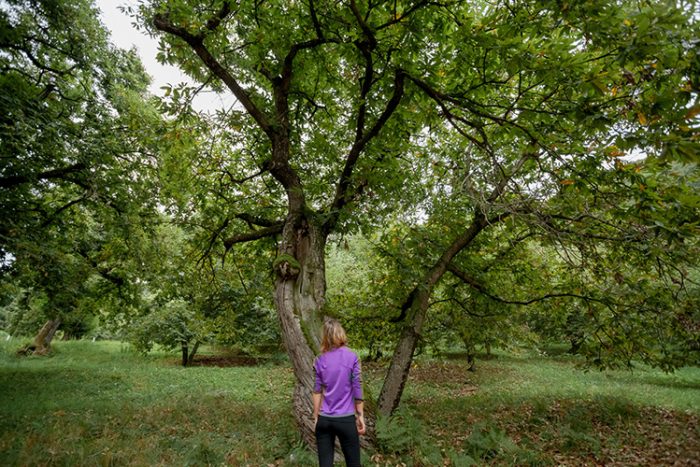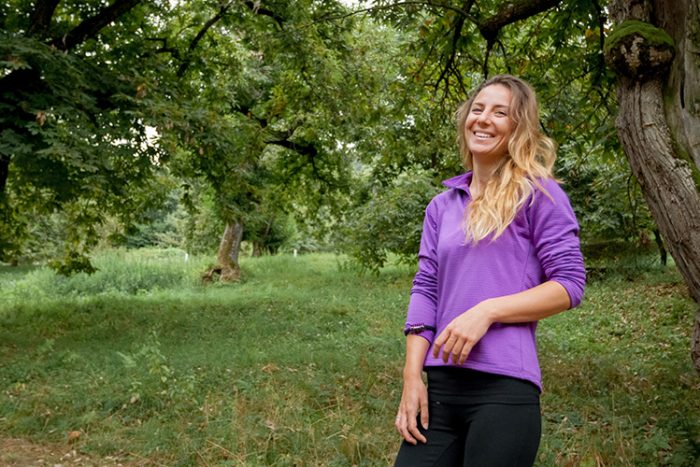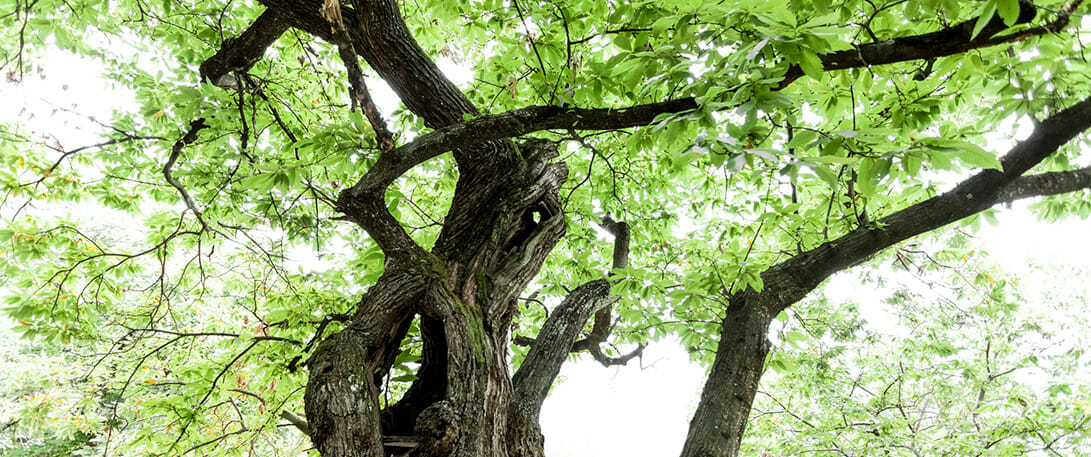The chestnut teaching, Alice
“Suddenly, my sister Giulia and I owned the chestnut grove, without knowing how to manage it. It had belonged to my family for many generations, and both for my grandfather and my father it represented the passion of their life. They had spent time, money and strain on it. My grandfather Saverio used to tell us that once the chestnut was their breadfruit, because it was used to make a lot of things: the wood warmed them up, the leaves were excellent as litter, the fruit could be eaten raw or transformed into flour, or rather it could be exchanged with other goods. Having such a patch meant being rich, and to him all these trees were holy. As soon as he retired, he had his leg amputated, but anyway he got on his Apecar every single day, perched on the roots of his favourite chestnut with the rifle on his laps and waited for the thieves. In autumn they are one of the scourges to struggle against.

My mum died when Giulia and I were still young, in 1998. My dad brought us up, and together with lots of other things he passed down the love for the chestnut grove, or he tried, at least: when we were teenagers we didn’t care so much, we preferred to hang out with our friends. In the last few years, when he went up to the grove I followed him, watching him grafting, cutting the grass before the harvest and listening to him talking about those trees. I was surprised by what he could do, he wasn’t actually a researcher but just a municipal clerk who used to ask for a month off in October to pick up the chestnuts in his woods. Although that wasn’t his job, he took care of the chestnut trees very carefully and thoroughly, having collected a lot of knowledge during his whole life. He was invited to give talks and sometimes I went with him. When we were together, very often I kept silent even if I had a question: his way of living, always looking forward, his attitude in making plans and thinking about the future made me feel comforted: no need to hurry, I repeated myself, he will explain me this next year, when it will be the time. Now I regret not to have asked him more questions.

When we inherited the grove, the most logic decision was selling it. We were two young girls with little knowledge. Everything would have been easier if we had got rid of it. But that passion we had never felt before was inside us, born from all those afternoons spent here with our father. Instead of cashing in a tidy sum immediately, we decided to earn less every year, selling those 2500 kgs of chestnuts harvested when the season is good enough. Compared to the earnings, the work is much more: the trees, more than 350 between the big and tall ones, have to be pruned periodically. In September there is the cutting of the grass and finally, when it’s time, we harvest by hand for about a month. In 2013 and 2014 the produce was really small,due to a disease and the bad weather, but in 2015 and 2016 we struggled to sift all the six hectares of our grove.

I love chestnuts, but they aren’t definitely an easy fruit. When you eat it, it’s soft, sweet and nourishing, but to enjoy its taste you have to get down on your knees, be bitten by the burrs on your fingers, be left holding the bag if the crop is bad. I think it works almost in the same with life, at least as far as I am concerned. Until some years ago, I felt different. I was introverted, shy, insecure. I had never accepted my mother’s death and I think it was the same for my dad, who tried to hide his vulnerability behind a great moral strength. When he passed away, his death could have make me closed myself in, but actually it helped me to move forward, towards adulthood. From a scared young girl I turned myself into an adult woman, open to the world. This doesn’t mean I’m not scared anymore, but that now I can manage my fear better. Keeping the chestnut grove came out to be the right choice, because Giulia and I found a way to keep on talking to our father. He created all this, for all of his life he invested everything he had in it. When I get close to the his trees, it’s even possible to feel his presence. Each time, coming here is almost like meeting him again.
Drena
In Trentino, as well as elsewhere, the distribution of the chestnut is connected to the great value it had in the past for the mountain people. They got some important subsistence source from this tree, as Alice’s grandfather shows. Its fruit is in fact very nutritious and was an important element for the local diet.
Traces of this past still remain around the several chestnut groves in Garda Trentino, among which those in Drena – crossed on the forth leg of Top Loop GardaTrek – Pranzo, Tenno and Campi are worth mentioning. Today the “marroni” (bigger and tastier than the regular chestnuts) are the real protagonist of events and special menus in autumn, and an integral part of the Vacanze con Gusto project.










